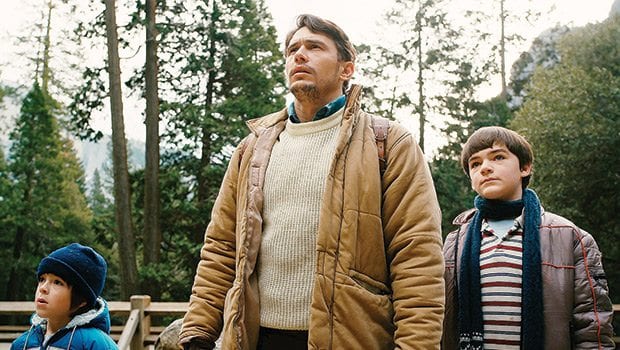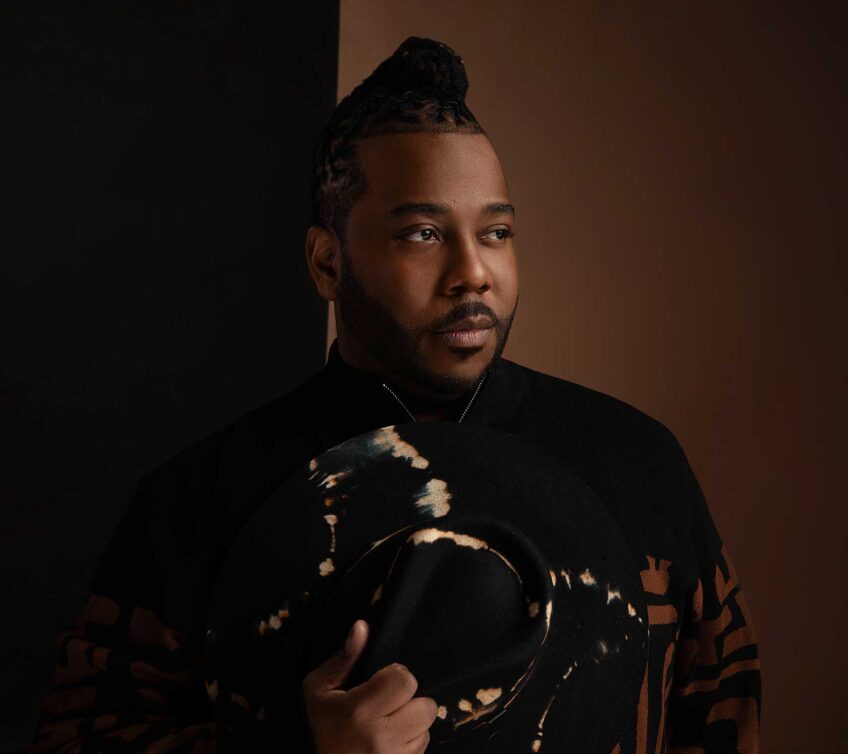
James Franco is an actor, director, screenwriter, producer, teacher and author. He began his career on “Freaks and Geeks” and received a Golden Globe Award for his performance in the biographical film “James Dean.”
His notable film credits include “Oz, the Great and Powerful,” “Spring Breakers,” the “Spider-Man” trilogy, “Milk” and “127 Hours,” for which he received an Academy Award nomination for Best Actor. On the stage, he recently made his Broadway debut in “Of Mice & Men” to rave reviews.
Franco has directed, written and produced several features and has been published in both magazines and his own books. He is currently teaching college courses at UCLA, USC and Cal Arts, as well as acting classes at Studio4.
Here, he talks about his latest screen offering, “Yosemite.”
Let me start by saying how impressed I am with the diverse and extensive body of work you’ve already compiled at such a young age, especially given how much time you’ve also devoted to your education. How have you managed to juggle the two so successfully?
James Franco: There came a time in my career when I realized that acting alone wasn’t going to allow me to express everything I wanted to express in all the ways that I wanted to. I had dropped out of UCLA, so I went back and finally got my bachelor’s degree at 28, I think. And I realized that school was good for me. I actually learned really well there. Not only that, I went to graduate school where a lot of my heroes would be my teachers in the writing and filmmaking programs. So, I couldn’t get enough school, and from that point on, a lot of opportunities opened up. For instance, at NYU, I met many of my collaborators, including Gabrielle Demeestere, who directed “Yosemite.” School also showed me that a great variety of projects were possible, as long as they were organized and scheduled in the proper way.
How did it feel playing a father in “Yosemite”?
JF: That was a particularly strange and gratifying experience. I wrote the short story it’s adapted from. It’s fiction, but I based a lot of it on trips I used to take to Yosemite with my father and brother. So, when Gabby asked me to play the father, she was essentially asking me to play my father, who passed five years ago.
I’m sorry to hear that.
On the web
To see a trailer for “Yosemite,” visit: www.youtube.com/watch?v=mseo8idx75s
JF: Thank you. By playing him and going back to Yosemite, it was almost like I was revisiting him, as if I got one more experience with him, which was nice. Strangely enough, even though I didn’t do any of the location scouting, Gabby ended up shooting at maybe four or five of the locations that my dad had taken me and my brother when I was a little kid. That was sort of surreal, and a case of fiction imitating life, or life being put on screen in the form of fiction.
What drives you to write a short story and also turn it into a movie? Do you think the audience can get the message and feel the same emotional response you’re after from either medium? Or do you see them as completely different art forms?
JF: One of the areas I work in frequently is adaptations. All of the movies I’ve directed are adaptations. I really enjoy that process. Having done a lot of them, I understand the two media to be related but they work in very different ways, and you get different things out of each. Not to say that one is better than the other. Generally speaking, you could say that with a piece of fiction it is much easier to convey the interior life of a character in a very smooth and fluid fashion. You can do that with an internal monologue or internal thoughts. With film, you have actors delivering performances which enable audiences to tap into the emotions of characters in a totally different way from how they do with characters on a page. With cinema, they’re responding to facial expressions and physical beings. And that’s something that prose cannot do. I enjoy both approaches, so I’m totally invested in both media, which is why I feel there’s value in writing a short story and also in having a it made into a movie.
Why did you decide to actually live on the streets and pass for a homeless person in preparation to play Joey in “City by the Sea.”
JF: I did “City by the Sea” a long time ago. A lot of actors can be very committed when they’re young. I was especially overzealous as a young actor. I would do whatever I could in preparation for a role. In addition, I was starring opposite one of my heroes, Robert De Niro. I really just wanted to go as far as I could in my preparation. So, I did sleep on the streets of Santa Monica for a weekend. I put on a disguise and stayed in one of the missions downtown overnight. And I also slept on the streets of New York. I don’t know whether my performance would’ve been the same otherwise, but it was good for me as an actor at the time, because it pushed me to commit emotionally to the character. And if anything, that sort of self-dedication can fuel your passion for the work.
What can you tell me about your next film, “Memoria”?
JF: “Yosemite” and “Memoria” were put together as films at the same time. I had just graduated from NYU where I had friends who I knew were very talented. I also knew that I kind of had a leg up in the business because I’d already been acting for a decade and a half. So, as a director, I was able to get my movies made much easier than my classmates. I put “Yosemite” and “Memoria” together in order to give opportunities to people from NYU who I knew were very talented and very deserving. I was also confident that they would adapt my stories into movies that I’d be very proud of. So I asked Gabby for “Yosemite,” and then Nino Ljeti and this guy Vlad [Vladimir de Fontenay] for “Memoria.” These movies were really just a way to collaborate with some of my friends and classmates on projects I knew they’d be well-suited for.


![Banner [Virtual] Art Gallery](https://baystatebanner.com/wp-content/uploads/2024/04/Cagen-Luse_Men-at-store-e1713991226112-150x150.jpg)

![Banner [Virtual] Art Gallery](https://baystatebanner.com/wp-content/uploads/2024/04/Cagen-Luse_Men-at-store-e1713991226112-848x569.jpg)

